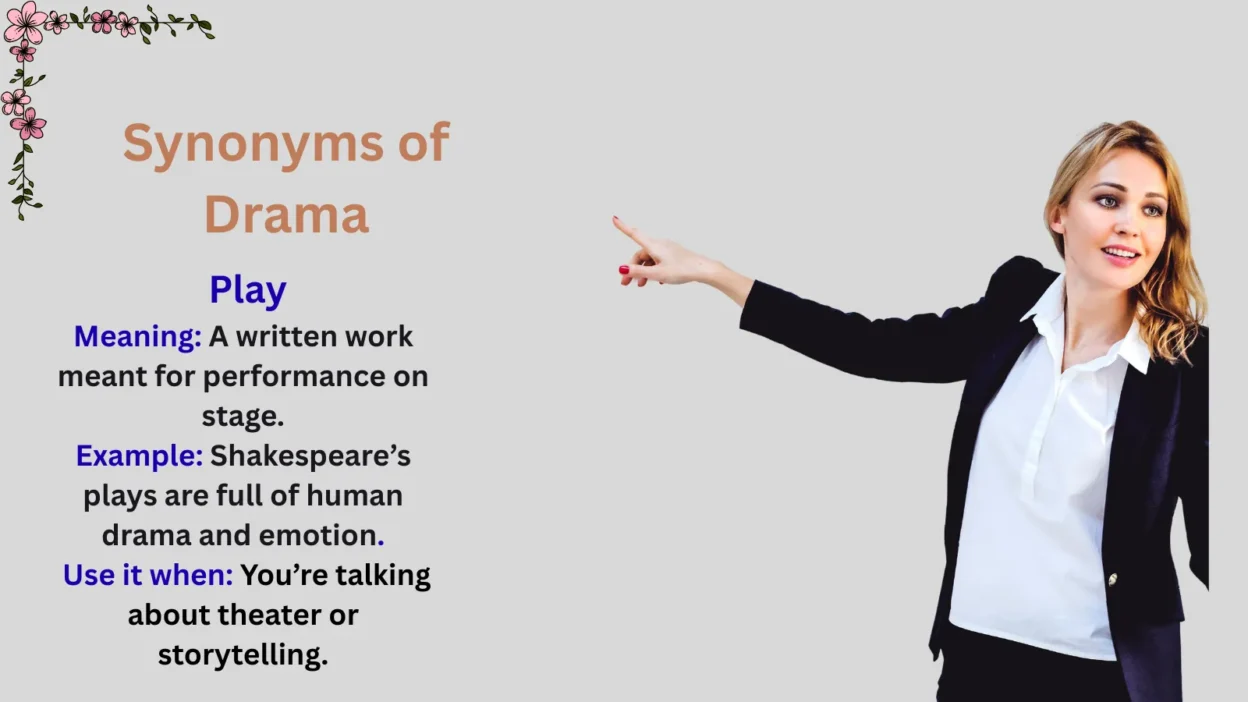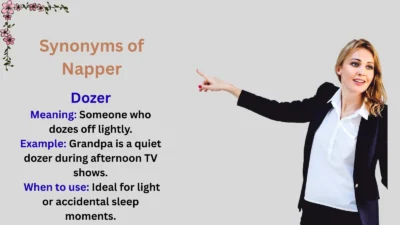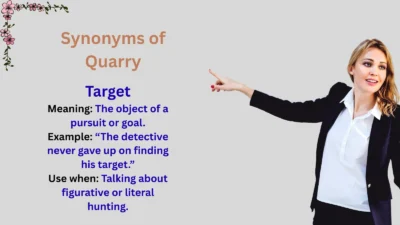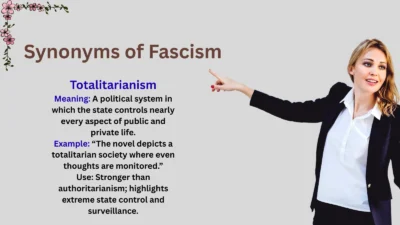Synonyms of drama, such as theater, spectacle, and conflict, capture the emotion, intensity, and storytelling that make dramatic moments unforgettable. The word “drama” can refer to both stage performances and real-life situations filled with tension or excitement.
If you’re describing a movie scene, a family argument, or a moment of suspense, using the right synonym can help you express the exact tone.
In this guide, we’ll explore a range of alternatives for drama, when to use them, and how each captures a unique shade of intensity.
What Does Drama Mean?
Drama refers to intense, emotional, or conflict-filled situations—whether on stage, in film, or in real life. The word comes from the Greek drama, meaning “action” or “deed,” which reflects its focus on events that move people or tell a story.
In literature and entertainment, drama usually means a story written for performance, filled with emotion, dialogue, and conflict. But in everyday life, “drama” can also describe personal tension, emotional reactions, or attention-seeking behavior.
Depending on how it’s used, drama can evoke:
- Emotional storytelling or performance
- Real-life conflict or intensity
- Sudden or exaggerated reactions
- Situations that draw strong attention
Drama connects emotion, expression, and human experience—whether on a stage or in a conversation. It’s about how people feel, react, and connect when the stakes are high.
Synonyms & Related Words for Drama (And When to Use Them)
1. Conflict
Meaning: A struggle between opposing forces or people.
Example: The story’s conflict keeps viewers glued to their screens.
Use it when: You’re describing tension or disagreement in a story or relationship.
2. Spectacle
Meaning: A visually striking or emotionally intense event.
Example: The wedding turned into a grand spectacle of emotions.
Use it when: The situation feels big, showy, or attention-grabbing.
3. Performance
Meaning: An act or display, often in theater or daily life.
Example: Her apology felt like a performance rather than real remorse.
Use it when: Someone’s behavior feels staged or exaggerated.
4. Scene
Meaning: A dramatic moment or confrontation.
Example: Please don’t make a scene in public.
Use it when: Referring to a public display of emotion or conflict.
5. Play
Meaning: A written work meant for performance on stage.
Example: Shakespeare’s plays are full of human drama and emotion.
Use it when: You’re talking about theater or storytelling.
6. Melodrama
Meaning: Exaggerated emotions or over-the-top reactions.
Example: The show leaned too heavily on melodrama and lost realism.
Use it when: The emotions or actions feel excessive.
7. Crisis
Meaning: A turning point or intense moment of difficulty.
Example: The company is facing a financial crisis that could change everything.
Use it when: There’s high tension or urgent stakes.
8. Turmoil
Meaning: A state of confusion, chaos, or emotional unrest.
Example: After the breakup, she was in emotional turmoil for weeks.
Use it when: Emotions are messy or unstable.
9. Tension
Meaning: A feeling of strain or unease before something happens.
Example: You could feel the tension in the room before the announcement.
Use it when: You want to show emotional or psychological pressure.
10. Commotion
Meaning: A noisy or confused disturbance.
Example: There was a commotion outside the theater as fans tried to enter.
Use it when: The situation is chaotic but not necessarily emotional.
11. Uproar
Meaning: A loud public reaction or protest.
Example: The decision caused an uproar among the audience.
Use it when: The drama involves public outrage or excitement.
12. Showdown
Meaning: A decisive confrontation between two sides.
Example: The final episode ended with a dramatic showdown between rivals.
Use it when: A conflict is about to be resolved.
13. Storyline
Meaning: The sequence of events in a narrative.
Example: The movie’s storyline is filled with unexpected twists.
Use it when: Talking about the structure of a plot.
14. Saga
Meaning: A long, dramatic story, often spanning generations.
Example: The family saga continues in the latest season.
Use it when: The drama unfolds slowly over time.
15. Episode
Meaning: A distinct event or incident within a larger story.
Example: That argument was just another episode in their long feud.
Use it when: Describing a smaller part of an ongoing drama.
16. Debacle
Meaning: A sudden and embarrassing failure.
Example: The press conference turned into a complete debacle.
Use it when: The drama results in a public failure or mess.
17. Fiasco
Meaning: A ridiculous or disastrous situation.
Example: The dinner party was a fiasco from start to finish.
Use it when: The event spirals out of control.
18. Spectacle
Meaning: A striking or shocking event that draws attention.
Example: Her dramatic exit became the evening’s main spectacle.
Use it when: Something is exaggerated or meant to attract eyes.
19. Confrontation
Meaning: A direct face-off or argument.
Example: Their confrontation on stage was both emotional and raw.
Use it when: People or ideas clash directly.
20. Incident
Meaning: A particular event or occurrence, often serious or emotional.
Example: The incident sparked a week of gossip and speculation.
Use it when: Describing a single moment of tension.
21. Tragedy
Meaning: A deeply emotional story or event ending in loss.
Example: Her story turned from romance to tragedy in a single day.
Use it when: The tone is sad, serious, or heart-wrenching.
22. Emotion
Meaning: The expressive feeling at the heart of drama.
Example: The actor poured genuine emotion into every line.
Use it when: Highlighting the intensity of feeling.
23. Soap Opera
Meaning: A long-running, exaggerated drama—often romantic or family-based.
Example: Their office politics could rival any soap opera.
Use it when: The drama feels never-ending or petty.
24. Thriller
Meaning: A suspenseful story that keeps people on edge.
Example: The show is a political thriller filled with twists.
Use it when: The drama involves excitement or danger.
25. Tale
Meaning: A narrative about real or imagined events.
Example: It’s a timeless tale of love and betrayal.
Use it when: You want to sound more poetic or literary.
26. Narrative
Meaning: The structured telling of events.
Example: The film’s narrative captures the complexity of human emotion.
Use it when: You’re focusing on the storytelling side of drama.
27. Scandal
Meaning: A shocking public controversy.
Example: The celebrity’s scandal became tabloid gold.
Use it when: Drama mixes with moral outrage or gossip.
28. Explosion
Meaning: A sudden emotional outburst.
Example: His anger exploded after weeks of silence.
Use it when: Referring to emotional release or escalation.
29. Climax
Meaning: The most intense or exciting moment in a story.
Example: The play’s climax left the audience breathless.
Use it when: Describing a turning point of maximum tension.
30. Misfortune
Meaning: An unfortunate event or series of troubles.
Example: The hero’s misfortunes make the drama feel real.
Use it when: The drama comes from sadness or hardship.
How to Choose the Right Synonym
Choosing the right synonym for “drama” depends on tone, emotion, and context:
- For emotional intensity: Use turmoil, tragedy, or melodrama.
- For storytelling: Choose narrative, tale, storyline, or saga.
- For conflict: Go with confrontation, showdown, or conflict.
- For public spectacle: Use scene, commotion, or scandal.
- For failure or chaos: Pick fiasco or debacle.
Cultural context matters too—some words like melodrama or soap opera often carry a slightly negative or humorous tone, while tragedy and narrative sound formal or artistic.
Conclusion:
The many synonyms of drama, from conflict and theatrics to emotion and spectacle, show how rich and expressive this word can be. Each synonym brings its own shade of meaning—some highlighting performance and storytelling, others focusing on emotional tension or real-life intensity.
Using the right synonym helps you match the mood of your writing—whether you’re describing a powerful stage play, a tense situation, or a heartfelt moment.
Drama, in all its forms, reminds us how emotion and expression shape human experience and storytelling alike.



